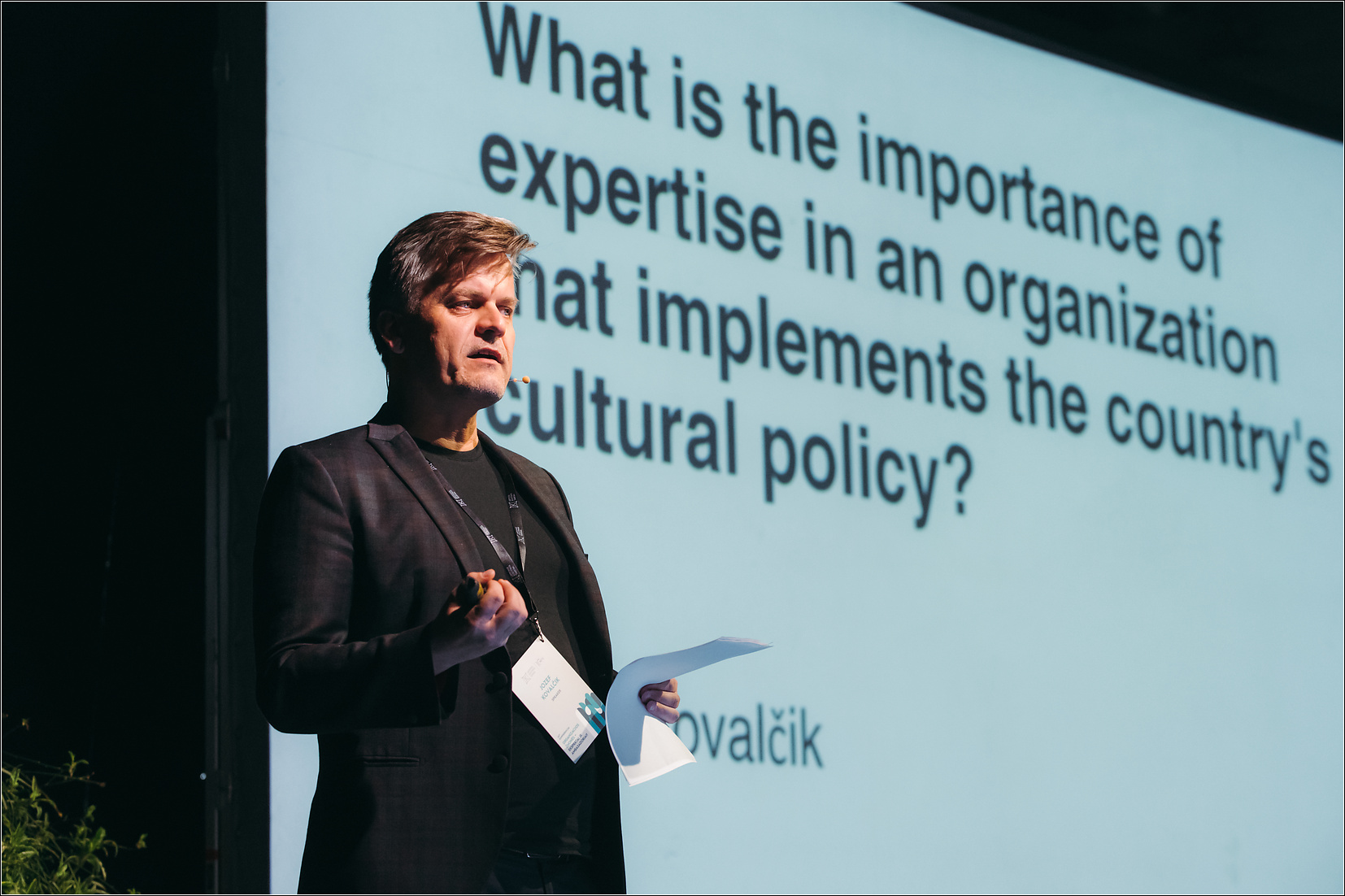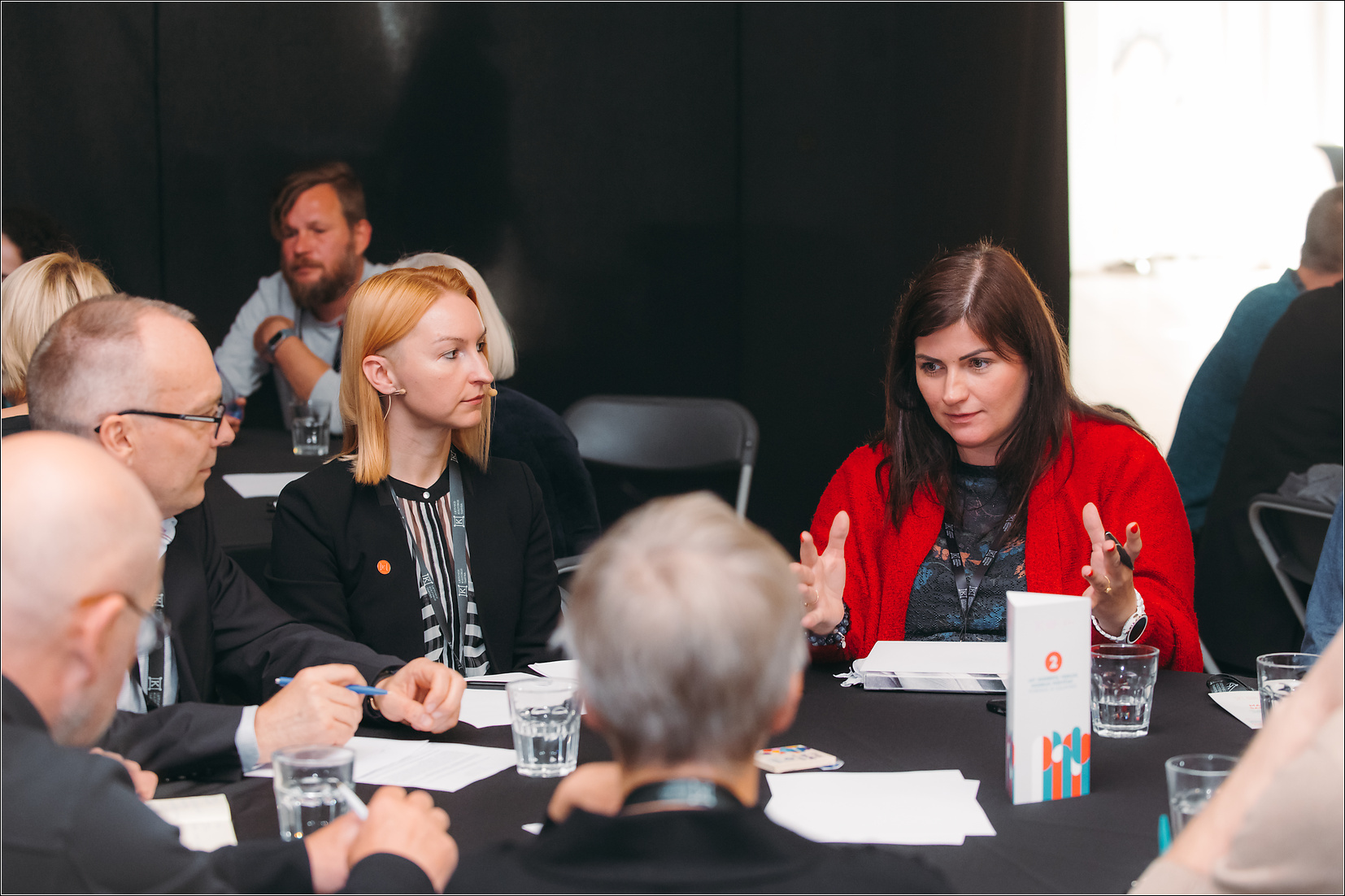October this year, Jozef Kovalčik, Head of the Slovak Arts Council of eight years, took part in the Lithuanian Council for Culture’s first conference People of the Organisation — Experts and Ambassadors. He said that arts councils are about creating the common good and stressed the importance of experts, their expertise, and institutional independence. Introducing the principles of the Slovak Arts Council, Kovalčik sought to answer the question of how important is expertise in an organisation that implements state cultural policy.
The importance of expertise and political autonomy in arts councils
Experts are an important part of arts and culture councils. They not only assess artists’ submissions but also contribute to shaping the overall culture of the country. J. Kovalčik noted that experts are one of the most important elements in the functioning of arts councils. The Slovak Arts Council currently employs 350 culture and arts professionals. A small number of members are English speakers but the majority of Committee members speak Slovakian or Czech. They are an important part of the Council’s work, not only ensuring the functioning of the Slovak Arts Council but also helping boost the confidence of artists and people working in the culture sector. “The Council must be competent and knowledgeable about its functions”, according to Mr Kovalčik, this is important both in the expert and political fields.
The importance of expertise is the cornerstone of the Council’s work, which not only shapes the efficient and quality work of the Council but also externally secures the Council’s reputation and the successful funding of artists’ projects. Evaluation criteria are an important aspect of the decision-making process. According to Mr Kovalčik, the Slovak Arts Council complements the importance of evaluation criteria with discussions between experts, which leads to better results.
He said each council has a different model, and one of the key interests of this Council is maintaining an independent decision-making process. All other processes, according to Mr Kovalčik, depend on the system, the situation, etc. “In most respects, we are an independent institution. We can design programmes, structure, and prioritise; we are more independent than other councils in Europe.” Political autonomy and the “distance“ from the executive are crucial for the Council, as well as the neutrality of its members. This is important not only for the smooth functioning of the Council but also for its own reputation.

Jozef Kovalčik, LCC Conference 2023. Vytenis Budrys photo
The role of arts councils in working towards the common good
“I must note that this institution does not aim to make everyone feel happy; it was not set up for the sake of the artists alone, it is here to benefit society.” Mr Kovalčik emphasised the Council’s mission to build public well-being: “Even if the Council does not have enough money to fund every artist, it can ensure that the best and most important projects in the field are funded.”
Mr Kovalčik assured that the Slovak Arts Council, like probably every institution, faces challenges. One of them is the traditional concept of art. There are times when applicants struggle to fit into a particular art form. This can lead to the loss of new projects and new ideas. He said that the Slovak Arts Council is allocated an annual budget of €20 million from the state, guaranteed by law: “The budget may vary from year to year, it may be €23 million or €24 million, but the minimum funding from the state always remains €20 million.” These funds are distributed to a wide range of projects, on average half of which receive funding. However, according to Mr Kovalčik, the Council does not fund institutions under the Ministry of Culture, and 65% of the funding goes outside the capital Bratislava. He stressed that Slovakia is not a centralised country. It has a population of around 5.5 million, around 600,000 people living in the capital city. However, many artists work and live in places other than the major cities, and the cultural community is spread across all regions of the country. Mr Kovalčik said this is the main reason why the Slovak Arts Council does not have separate programmes for the regions. Therefore, the Council does not face any problems in involving artists and organisations located in the regions.

LCC Conference 2023. Vytenis Budrys photo
About the Slovak Arts Council
The Slovak Arts Council was founded in 2015 as a public body independent of the country’s Ministry of Culture. The Council allocates the majority of its funds to creating, disseminating, and presenting works of art and building international cooperation. In addition to these functions, the Arts Council cooperates with other public administration bodies, local authorities, public law institutions and others to create favourable conditions for the development of artistic activities, culture, and creative industries in Slovakia.
In 2022, the Slovak Arts Council received applications from 5,642 organisations. They applied for the different areas funded by the Council, namely arts, traditional culture and cultural heritage, cultural-educational, scientific and educational activities, cultural events, magazines, cultural centres, memory and heritage institutions, and the City of Culture programme. It also received 1,664 scholarship applications. Each year, the Council funds around 50% of the submitted initiatives. It has allocated a total of over €20 million for 2022.